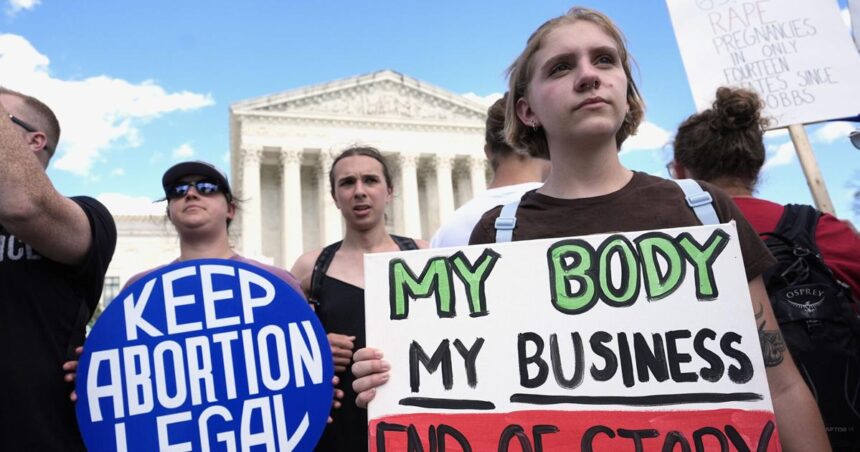Before the Supreme Court overturned Roe v. Wade, a group of conservative Christians worked to influence the courts through political channels. Elizabeth Dias and Lisa Lerer captured this in their recounting of the network’s activities for The New York Times Magazine. They described how the group used legal arguments and medical studies to shape the legal landscape post-Roe.
Following the Dobbs v. Jackson Women’s Health Organization decision in 2022, many states have enacted restrictive abortion laws. The Guttmacher Institute reports that 14 states have banned abortion with limited exceptions, and seven states have restricted the procedure before 18 weeks.
After Dobbs, the legality of abortion in the U.S. faced challenges in court. Brennan Center for Justice reported 40 cases challenging abortion bans in 23 states. Organizations in states like Alabama, Mississippi, North Carolina, and South Carolina are responding to these legal changes and the risks they present.
With the end of Roe, organizations are experiencing fear and uncertainty. New laws and prosecutorial tactics have raised concerns about free speech and access to care while the legal community tries to keep pace.
Abortion Laws and Free Speech
In Alabama, a ban on abortion led to a lawsuit challenging the state’s threat to prosecute anyone aiding in out-of-state abortions. The lawsuit argues that such prosecutions inhibit free speech and impact people’s ability to access medical care.
The legal challenges posed by new abortion laws lack precedent. States are passing laws targeting aiding individuals seeking abortions or leaving states where abortion is restricted. Legal battles in states like Idaho and Tennessee highlight the complexities of these laws.
Reproductive Care Deserts
Rural hospitals have been closing labor and delivery wards due to financial reasons. This has created maternity care deserts where access to reproductive health care, including abortions, is scarce. Telehealth options also face legal challenges.
One example is in Ohio, where the ACLU and Planned Parenthood are challenging laws that hinder access to abortion medications through telehealth services. These restrictions disproportionately affect women in rural areas and low-income communities.
Legal Tactics and Confusion
The rapidly changing laws have created confusion and a need for legal guidance. Legal organizations have formed coalitions to support attorneys navigating these uncertainties. The Abortion Defense Network is an example of such collaboration.
This story was produced by The Marshall Project, a nonprofit news organization focused on the U.S. criminal justice system, and reviewed and distributed by Stacker Media.





